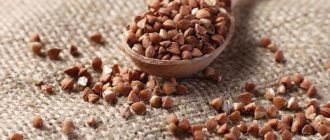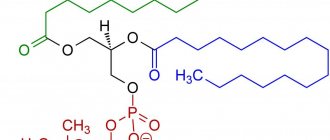The role of proteins
High-molecular natural nitrogen-containing substances, molecules are built from amino acid residues, into which they are converted again during metabolism.
Our body is made of protein, 20%. 50% - muscles, 20% - cartilage, bones, 10% - epidermis.
Collagen is the main component of the intercellular matrix (a supramolecular complex formed by a complex network of interconnected macromolecules). Covers 30% of the total mass of proteins in the body.
It consists of interwoven fibers, like a frame, and new cells are added here. The design provides flexibility and elasticity of biological materials.
The difference between collagen and other human proteins is the enormous concentration of glycine, proline, and hydroxyproline. They give it rigidity.
Directly affects the binding base. Many diseases are caused by its deficiency.
Collagen in capsules – what is it good for for women?
When it comes to the question of which collagen for women to buy, in powder or capsule form, experts prefer the latter option. The drug is in a soluble coating:
- just accept;
- easily absorbed by the body;
- no need to dilute with water;
- convenient to store and transport without the risk of spilling;
- contains additional beneficial additives.
Regular intake of fibrillar protein in the form of Collagen capsules has the following positive effects on women:
- rejuvenating (smoothes out the fine network of facial wrinkles around the mouth, eyes, evens out deep furrows of age-related creases in the epidermis on the forehead, chin, near the lips);
- whitening (removes areas with hyperpigmentation on the skin of the face and body);
- strengthening (prevents weakening of hair follicles, thickens the structure of the nail plate);
- calming (improves sleep, normalizes circadian biological rhythms, improves overall tone);
- restorative (replenishes the level of joint fluid);
- cleansing (removes salts and toxins from tissues and cells);
- supporting (improves metabolism, strengthens bones, ligaments, joints).
What is connective tissue
We are made of connective tissue. The rest of the elements are woven in here. The percentage is at least sixty of the weight of each organ. Kidneys, lungs - 90%. Heart-60%.
It shapes the internal environment of a person.
Its main task is the complete interconnection of working elements, microparticles of matter.
This is done by the following functions:
Protective and obstructive.
The epidermis, mucous membranes, intracranial, peri-neural films, capsules are an outpost of the whole organism from external influences.
Frame (support-mechanical). Ligaments, bones, tendons, fascia - skeleton, vital organs.
The saturating and excreting fluid is supported through the circulatory system, intraocular and intracranial fluid by blood. All types of metabolism are moving.
Strengthening. Achieved by good flexibility of the characteristics of the constituent binder materials.
Regenerating. Heals wounds, ulcers, visible defects.
Morphogenetic (structure-forming). Forms various combinations, forms capsules, intraorgan partitions.
Connective tissue - collagen fibers and intercellular matrix.
The importance of collagen for the human body

Collagen is one of the most common and unique proteins in its properties. It is a kind of “adhesive composition” that holds the entire body together, holding together muscle groups, tissues, and organs. An integral part of tendons, ligaments, joints and bones, it provides mobility but prevents these moving parts from falling apart.
Together with elastin, which is also found in connective tissue, collagen makes tissue elastic. This determines the most important function of the substance, thanks to which this protein is included in numerous procedures to maintain youth, firmness, elasticity, and beauty of the skin.
Collagen production decreases with age. The older a person gets, the less amount of this protein is synthesized in the body. This is also facilitated by other factors, which include the three reasons listed below.
Myths and truth about collagen. Dermatologist-cosmetologist Elena Khlopova.
Beneficial features
For women
Testing was carried out in a focus group of women aged 35 to 55 years. Some were given a false tablet to take orally, others a collagen tablet. Weight varied 2.5-5 g.
For a month and a half, the dermis was diagnosed daily for moisture, roughness, and elasticity.
The ratings were amazing:
A clear increase in elasticity and moisture was found in two groups drinking collagen. The “placebo” command remains unchanged.
Not stopping there, we decided to test a serum with antioxidants + the use of protein peptides. The company was 33-45 years old.
An excellent impression was formed almost at the beginning of the process. Then it intensified for a hundred days.
Reviews from women indicate the positive effect of the product on folds, cellulite, and stretch marks.
For face
Moisturizing properties and help in the fight against wrinkles are no secret. Forms a protective film on the surface of the face that retains moisture. Gives shine. Distributing it evenly among the smallest functional particles. The result is a lifting effect. Cosmetics based on it are productive. To support your face, it is better to use marine peptide collagen type 1,3 internally.
For hair
Undoubtedly positive for hair:
Regenerates hair;
Makes them shiny, voluminous, silky;
Prevents hair loss;
Unites small particles, preventing split ends of hair;
]
Maintains moisture balance;
Protects from adverse environmental influences.
In sports
Most manufacturers of sports products and bodybuilding are trying to add collagen to increase the effectiveness of drugs for muscle building, prevent injuries to tendons and joints, and enhance the success of training. Conducted testing among athletes. It showed that drinking 50 g of peptides daily can greatly reduce the chance of injury under increased loads.
In old age
After 50 years, hormonal levels begin to decline, and collagen is highly dependent on this. You should increase your daily intake in possible ways (foods, supplements).
It is naturally contained in our bones and joints, adding more of it to your diet will help you see its benefits for the skeleton.
For joints
A study of 150 athletes lasted six months to test the effectiveness of collagen on joints during intense work. One group was given a liquid hydrolyzate, while others received a placebo.
The first team showed obvious changes under all loads - walking, prolonged standing, dragging objects, moving uphill, and a calm state.
Interesting treatment for sore knees.
Medical experts conducted a clinical trial using people with bad knees or connective tissue dysplasia. The effect was amazing. Collagen supported the joints and reduced the risk of further deterioration in health.
Weight loss
The ability to enhance metabolic processes and functionality is relevant today in weight loss programs. Tests have shown the effectiveness of daily intake of fifteen grams of hydrolyzate. A decrease in body weight was observed by approximately four kilograms over three months.
An important role is played by its significant part, glycine, which helps move sugar, providing a boost of energy.
For men
For men, the weakening of hormonal levels does not have such a strong negative effect on the surface integument as in the fairer sex. But for general improvement of health, with great physical activity, collagen will serve with constant success.
For the digestive system
According to unverified facts, the effect of collagen on leaky intestinal syndrome is considered to be positive. It tightens cracks according to the principle of working with wrinkles on the face.
For digestive problems:
Envelops and relaxes the irritated gastrointestinal mucosa;
Participates in metabolism;
Repairs damaged ones, creates fresh cells along the entire length of the intestines;
Strengthens the motility of the gastrointestinal tract.
Untested effects of use
The amino acid glycine is multifaceted. Increases energy, improves night sleep.
Let us turn to available experiments with placebos to exclude self-hypnosis. Thirty minutes before bedtime, the subjects were given glycine. We slept on average seven and a half hours. During the test (three days) it was reduced to five and a half. The expected state is lethargy, weakness. The results were opposite. Clearly, this is not enough to understand the patterns. But the trend is interesting.
Adding collagen to your diet can improve sleep quality and relieve daytime sleepiness. And for some it improves memory. Let us remember that amino acid is its component.
We damage collagen
Age-related changes, of course, lead to a natural decrease in the synthesis of this androgenic protein, but the lifestyle a person leads also contributes to this process.
Poor nutrition, bad habits, and prolonged exposure to ultraviolet (solar) radiation lead to collagen production beginning to decline at a rapid rate. This also applies to elastin. Eating foods high in sugar and refined carbohydrates depletes collagen levels.
If you eat right, get enough sleep, engage in regular physical activity, and try not to be exposed to sunlight during peak hours, this will help significantly reduce the rate of decline in the synthesis of both collagen and elastin, which will lead to maintaining youthful skin and a thin waist.
Damage to collagen due to bad habits

Along with poor nutrition, poor environmental conditions, and ultraviolet radiation, collagen levels also drop due to smoking, as well as under the influence of toxic chemicals.
The combination of bad habits and poor nutrition with the negative impact of the environment and the natural aging process leads to internal and external self-destruction. This can only be avoided if these factors are limited, that is, by normalizing your own diet and giving up bad habits.
Decreased collagen levels as a result of autoimmune disorders
There are a number of diseases, including autoimmune diseases. They lead to the production of antibodies that damage collagen. Taking collagen supplements can solve this problem. It is not recommended to take such drugs on your own. First, you need to consult with a specialist who will determine the advisability of taking such a remedy, and only then begin therapy.
Most of the factors that lead to the destruction of collagen can be controlled by humans. Of course, this will not completely stop the process of its natural loss with age, but it will not allow it to decrease below the level that is considered natural at a given age.
How much is required per day
The average person needs 5 g per day. Athletes and outdoor enthusiasts should consume up to ten grams after fifty. The same amount is included in the therapeutic dose.
Please note that normal absorption occurs when supplemented with vitamin C. Magnesium, lecithin, and silicon will not interfere.
Additional rules for taking collagen:
- Compliance with the dosage from the instructions;
- We wait two hours between using types 1 and 2.
- It is advisable to divide 10 g into 2-3 times;
- Do not drink with protein shakes, water, or hot drinks;
- After the course, a break from a month to six months. If you drink constantly, for a long time, the body loses the ability to synthesize collagen;
- We change manufacturers.
What type is needed
There are 3 main types. The first and third types are recommended to be taken for skin rejuvenation and general health. Type 2 drugs are popular in the treatment of diseases of the ligaments and musculoskeletal system. More details here.
Studying the instructions for use is necessary. There are always contraindications and different consumption options. If there is no description, the product is falsified by an unscrupulous manufacturer. It is not officially a medicine. It’s a good idea to get a review from your attending physician!











